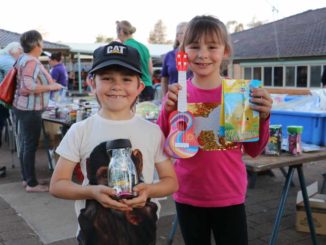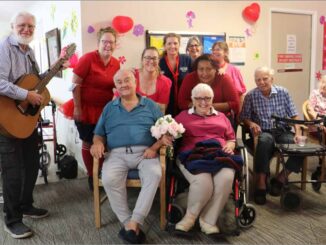
As part of their project based learning unit Make a Difference Cobar Public School’s 2P students recently visited the Lilliane Brady Village to show some of the residents how to use an iPad.
CPS teacher Lane Poland said The Make a Difference project requires students to identify a problem in the community, and then propose an activity to address the issue.
“To do this, students produced an item, spearheaded an effort, or participated in a campaign that has a measurable impact on the community and meets a real and current need.
“They worked in teams to generate ideas, refine drafts, analyse results, showcase their work, and share feedback,” Mrs Poland said.
“In doing so they engaged in important syllabus outcomes across multiple disciplines.”
The final product had to be meaningful, have significance beyond the classroom, and benefit the community.
“Throughout this project, students had to think critically and creatively about the obstacles present in their communities and environments and collaborate to solve contemporary problems faced by people, animals, and habitats,” Mrs Poland said.
Technology skills were developed as students selected and used the appropriate tools for developing, printing, photographing, recording, and otherwise creating and communicating their work to the community.
Other teams organised reading groups within the school, clean up rubbish days, made posters supporting a quit smoking campaign and made recycled material bird feeders.


